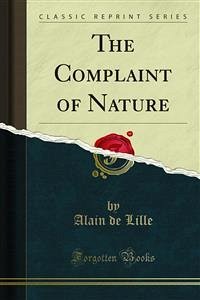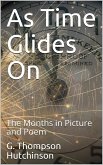"A Lover's Complaint" is a narrative poem written by William Shakespeare, and published as part of the 1609 quarto of Shakespeare's Sonnets. It was published by Thomas Thorpe.
“A Lover’s Complaint” is an example of the female-voiced complaint, that is frequently appended to sonnet sequences. Other examples include Samuel Daniel’s “Complaint to Rosamund”, which follows Daniel's Delia (1592), Thomas Lodge’s “Complaint of Elstred”, which follows Phillis (1593), Michael Drayton’s “Matilda the Faire”, which follows Ideas Mirrour (1594), and Richard Barnfield’s “Cassandra”, which follows The Affectionate Shepherd.[1]
The poem consists of forty-seven seven-line stanzas written in the form known as rhyme royal (rhyme scheme ABABBCC), a metre identical to that of Shakespeare's poem The Rape of Lucrece.
The poem begins with a description of a young woman weeping at the edge of a river, into which she throws torn-up letters, rings, and other tokens of love. An old man nearby approaches the woman and asks the reason for her sorrow. She responds by telling him of a former lover who pursued, seduced, and finally abandoned her. She recounts in detail the speech her lover gave to her which seduced her. She concludes her story by conceding that she would fall for the young man's false charms again:
O, that infected moisture of his eye,
O, that false fire which in his cheek so glowed,
O, that forc'd thunder from his heart did fly,
O, that sad breath his spungy lungs bestowed,
O, all that borrowed motion seeming owed,
Would yet again betray the fore-betray'd,
And new pervert a reconciled maid!
“A Lover’s Complaint” is an example of the female-voiced complaint, that is frequently appended to sonnet sequences. Other examples include Samuel Daniel’s “Complaint to Rosamund”, which follows Daniel's Delia (1592), Thomas Lodge’s “Complaint of Elstred”, which follows Phillis (1593), Michael Drayton’s “Matilda the Faire”, which follows Ideas Mirrour (1594), and Richard Barnfield’s “Cassandra”, which follows The Affectionate Shepherd.[1]
The poem consists of forty-seven seven-line stanzas written in the form known as rhyme royal (rhyme scheme ABABBCC), a metre identical to that of Shakespeare's poem The Rape of Lucrece.
The poem begins with a description of a young woman weeping at the edge of a river, into which she throws torn-up letters, rings, and other tokens of love. An old man nearby approaches the woman and asks the reason for her sorrow. She responds by telling him of a former lover who pursued, seduced, and finally abandoned her. She recounts in detail the speech her lover gave to her which seduced her. She concludes her story by conceding that she would fall for the young man's false charms again:
O, that infected moisture of his eye,
O, that false fire which in his cheek so glowed,
O, that forc'd thunder from his heart did fly,
O, that sad breath his spungy lungs bestowed,
O, all that borrowed motion seeming owed,
Would yet again betray the fore-betray'd,
And new pervert a reconciled maid!









